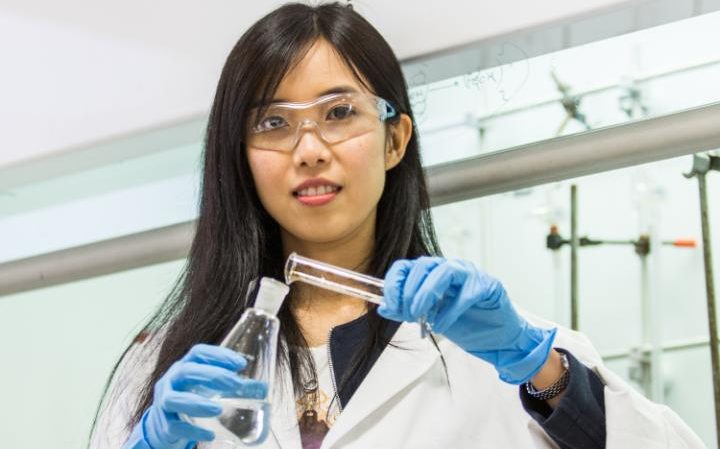Earlier this month all 193 UN member states agreed to combat the growing threat of antibiotic resistance. At the general assembly last week the UN secretary general, Ban Ki-moon, described antimicrobial resistance as a “fundamental threat” to global health and safety.
It was only the fourth time the general assembly has had a high-level meeting for a health issue. Meanwhile, on the other side of the word, one PhD student is taking matters into her own hands.
Shu Lam is a Malaysian-born PhD student at the University of Melbourne and she’s researching an innovative microbiology approach to attacking drug-resistant infections.
For the past three years Lam has been researching her own method of killing bacteria using tiny star-shaped molecules, built with chains of protein units called peptide polymers.
Lam, who is leading a team of six researchers, has said the 4am starts and weekends of working are worthwhile. She believes her discovery could one day be a ground-breaking alternative to fight antibiotic-resistant infections;
“We’ve discovered that the polymers actually target the bacteria and kill it in multiple ways. One method is by physically disrupting or breaking apart the cell wall of the bacteria. This creates a lot of stress on the bacteria and causes it to start killing itself.”
A significant benefit is that the polymers attack the bacteria directly, unlike antibiotics, which create a toxic swamp that also destroys nearby healthy cells.
Pathology is vital in combatting the overuse and incorrect use of antibiotics which has already rendered some strains of bacteria untreatable, allowing “superbugs” to mutate.
Currently superbugs kill an estimated 700,000 people a year, including 230,000 newborns, but this is set to rise to 10 million a year by 2050 if drastic action is not taken.
It’s very early days but Lam’s research has already been published in Nature Microbiology and is being hailed by scientists as a “breakthrough that could change the face of modern medicine”.

